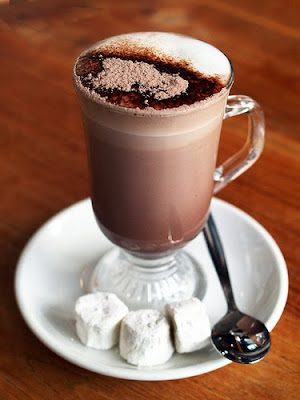Chocolate: Food of the gods
Chocolate has the reputation of being a “forbidden food” that's divinely delicious, especially around Valentine's Day. In fact, the ancient Mayans referred to chocolate as the food of the gods. Today, research has shown that chocolate has some beneficial health effects and is not necessarily a food taboo.
A different saturated fat
Chocolate contains cocoa butter, which is high in saturated fat, yet one-third of chocolate's fat comes from stearic acid. Although it's a saturated fat, stearic acid does not raise LDL cholesterol (the bad cholesterol) as do most other saturated fats. Stearic acid is converted in the liver to oleic acid, a heart-healthy, monounsaturated fat.
Another one-third of chocolate's total fat comes from oleic acid itself. In a recent study, volunteers followed a diet with the majority of their fat calories coming from either chocolate or from butter. The volunteers who consumed chocolate fat did not show an increase in their cholesterol levels, but those who ate butterfat developed elevated LDL cholesterol levels1.
Chocolate contains antioxidants
Over 300 naturally occurring chemicals are found in chocolate. In a study conducted by Andrew Waterhouse, chocolate was found to have potent antioxidants called phenols. These antioxidants are the same types found in red wine2. Cocoa phenols were found to prevent the bad cholesterol from causing plaque buildup in the arteries. In another study cocoa inhibited LDL oxidation two hours after consumption3.
Waterhouse also found that the darker the chocolate, the more phenols it contains. Darker and finer chocolates contain 70 percent cocoa butter, which provides the stearic acid. Most commercial candy bars contain only 20 percent cocoa butter. The conclusion is the purer and darker chocolates may provide the most health benefits.
Less caffeine than you might think
Other more commonly known nutrients and substances are found in chocolate. Chocolate is a rich source of magnesium and phosphorus. Also, contrary to popular belief, chocolate contains only a limited amount of caffeine. An average chocolate contains about 10 mg of caffeine, while one cup of coffee contains 100 mg.
Craving chocolate
Some substances in chocolate are predicted to make us crave it. A substance called phenylethylamine is found in chocolate and seems to trigger feelings similar to “falling in love.” There is also a compound in chocolate called anadamide that stimulates brain receptors in a manner similar to that of other addictive substances. Chocolate cravings may also be triggered when the taste buds tingle with the taste of chocolate. This sensation occurs because chocolate's melting point is 97 degrees, just below body temperature. When the taste buds are excited, endorphins are released from the brain. These endorphins are the body's “feel good” chemical. There is also a link between hormonal fluctuations in women and chocolate cravings. Scientists cannot pinpoint what exactly causes us to crave chocolate, but many of these ideas propose that chocolate cravings are real.
Chocolate's drawbacks
Despite the recent positive press, chocolate has its drawbacks. In some people, chocolate has been associated with kidney stones, headaches, acne, allergies, dental cavities and premenstrual syndrome. However, most of the scientific evidence linking these problems to chocolate is weak. Yet for some people, chocolate really does have a negative effect.
As in everything…moderation
Chocolate, this Mayan food of the gods, has both its positive and negative health benefits. Rather than replace your daily dose of fruits and vegetables with a hunk of solid chocolate, the best way to go about eating chocolate is in moderation.
An occasional chocolate bar during the week is acceptable within the context of a balanced diet. If you do decide to add chocolate to your diet, it's also important to make “trade-offs” with other high calorie foods so chocolate can fit into your diet without gaining weight.![]()





